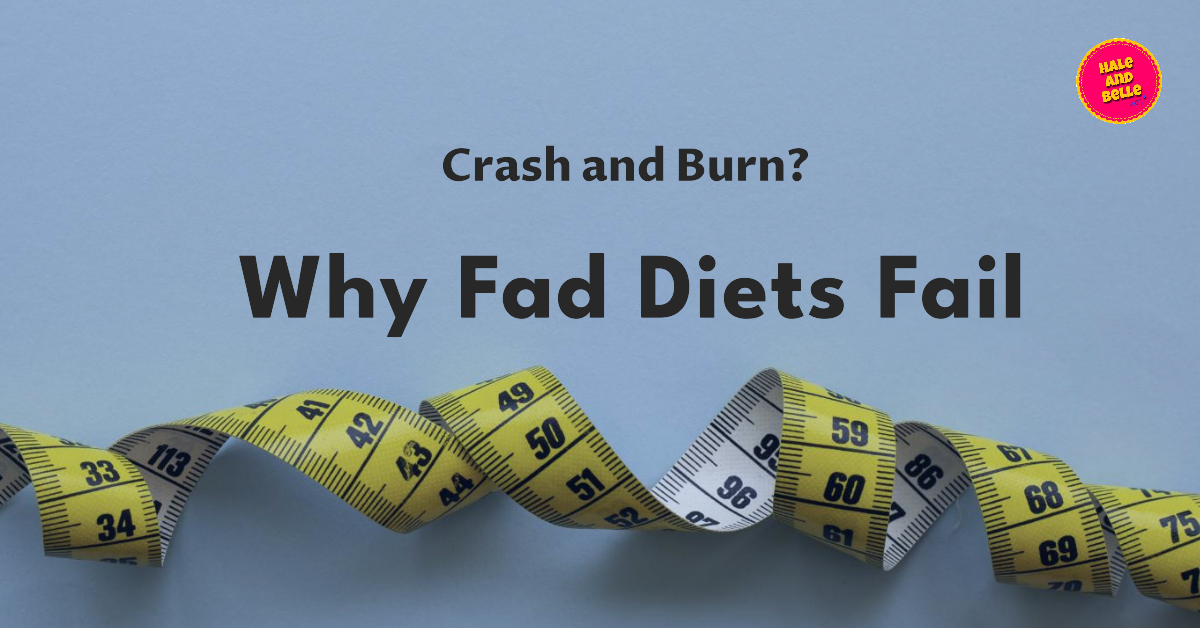In the world of health and wellness, fad diets have become a pervasive trend, enticing individuals with promises of rapid weight loss and improved well-being. But what exactly are fad diets, and are they truly beneficial for our health? In this comprehensive article, we will explore the concept of Yo-yo diets, examine different types, assess their potential health impacts, and advocate for a sustainable living approach that prioritizes long-term health and wellness (1).
In This Article
What are Fad Diets?
Fad diets are characterized by their popularity and widespread adoption, often fuelled by media buzz and celebrity endorsements. These diets typically promote extreme or restrictive eating patterns, promising quick results with minimal effort. While fad diets may vary in their specifics, they often share common traits such as:
- Elimination of entire food groups: Many of these unsustainable diets advocate for the exclusion of certain food groups, such as carbohydrates or fats, under the premise that they are inherently unhealthy or contribute to weight gain.
- Emphasis on specific foods or nutrients: Some fad diets focus on certain foods or nutrients, promoting them as “miracle” ingredients that can facilitate weight loss or improve health outcomes.
- Short-term mindset: Fad diets often prioritize short-term results over long-term sustainability, encouraging rapid weight loss through drastic measures that are difficult to maintain over time.
Types of Fad Diets
There are numerous types of fad diets that have gained popularity over the years. Some of the most well-known examples include:
- The Atkins Diet: This low-carbohydrate diet emphasizes high-protein and high-fat foods while restricting carbohydrates, with the goal of inducing a state of ketosis for weight loss.
- The Paleo Diet: Based on the presumed dietary patterns of our Palaeolithic ancestors, this diet promotes the consumption of whole, unprocessed foods while excluding grains, legumes, and dairy products (2).
- The Juice Cleanse: This diet involves consuming only fruit and vegetable juices for a specified period, typically ranging from a few days to several weeks, under the belief that it detoxifies the body and promotes weight loss.
- The Gluten-Free Diet: This diet excludes foods containing gluten, a protein found in wheat, barley, and rye, often with the intention of improving digestive health or managing certain medical conditions.
- Ketogenic Diet: The ketogenic diet is extremely low in carbohydrates and high in fats. It has been associated with weight loss and improved insulin sensitivity. However, long-term effects on health are still uncertain, and it may be challenging to maintain over time (3).
Are Fad Diets Really Healthy?
While fad diets may yield short-term weight loss results, their long-term health impacts are often questionable. Here are some reasons why Yo-yo diets may not be as healthy as they claim:
- Nutrient deficiencies: Many fad diets restrict certain food groups or nutrients, potentially leading to deficiencies in essential vitamins, minerals, and macronutrients.
- Disordered eating patterns: Fad diets can contribute to disordered eating behaviours, including binge eating, emotional eating, and obsessive thoughts about food, which can have negative consequences for both physical and mental health.
- Lack of sustainability: Fad diets are typically not sustainable in the long term, leading to a cycle of weight loss and regain known as “yo-yo dieting” that can negatively impact metabolism and overall well-being.
Promoting Sustainable Living
In contrast to fad diets, a sustainable living approach to health and wellness prioritizes balanced nutrition, regular physical activity, and mindful lifestyle choices that support long-term well-being. Here are some key principles to promote sustainable living:
- Balanced nutrition: Focus on consuming a variety of nutrient-dense foods, including fruits, vegetables, whole grains, lean proteins, and healthy fats, to support overall health and vitality.
- Regular physical activity: Incorporate regular exercise into your routine, choosing activities that you enjoy and that align with your fitness goals and preferences.
- Mindful lifestyle choices: Practice mindfulness and self-care in your daily life, prioritizing activities that nourish your body, mind, and spirit, such as meditation, yoga, and adequate sleep.
By adopting a sustainable living approach to health and wellness, you can cultivate lifelong habits that support your overall well-being and empower you to live your best life. Remember, true health is not about quick fixes or restrictive diets—it’s about making informed choices that honour your body and promote vitality for years to come.
Takeaway:
Fad diets may offer temporary solutions for weight loss, but they often fall short in promoting long-term health and wellness. By debunking the myths surrounding Yo-yo diets and advocating for a sustainable living approach, we can empower individuals to make informed choices that support their overall well-being and foster a healthier, happier world for all.
Was this information helpful?
Poll Results
Yes: 0
No: 0











